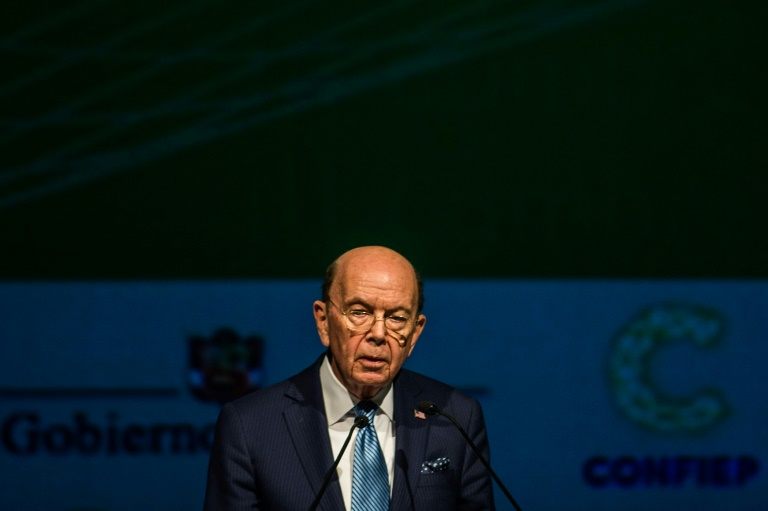
Secretary of Commerce Wilbur Ross, pictured on April 12, 2018, said since the US has a trade deficit with Europe, any retaliation would raise costs in the member nations. (Photo: AFP)
The United States is hopeful it will reach an agreement to reduce tensions with the European Union over tariffs imposed on steel and aluminum, Commerce Secretary Wilbur Ross said Tuesday.
Speaking hours after President Donald Trump granted the EU a 30-day exemption from the tariffs, Ross said the move was justified, "because we're having some potentially fruitful discussions about an overall reduction in trade tensions between the EU and ourselves."
He told CNBC the talks would cover "a whole lot of topics" between Washington and Brussels but did not specify what Washington is seeking.
Trump imposed the metals tariffs in March on national security grounds but comments from Ross and other officials seem to indicate the administration is looking for broader concessions, including potentially on US auto exports.
"We're hopeful that something good will come out of it," Ross said of the talks with the EU, and added that the US does not plan to provide "protracted extensions" to the tariff exemptions.
The EU has acknowledged a problems due to a supply glut but has insisted it will not negotiate without first obtaining a permanent exemption. And it has warned it is ready to retaliate.
But Ross said since the US has a trade deficit with Europe, any retaliation would raise costs in the member nations.
- 'Some hope' for China talks -
"We are the ones in the deficit position. That means they have more to lose at the end of the day."
The same would apply to China, which also has threatened to retaliate against the metal tariffs and the punitive duties Trump has announced for $50 billion in Chinese goods, which are aimed at forcing the country to change its policies on intellectual property rights.
China, the largest market for US soybeans, has threatened to impose high tariffs on the grain, which is creating concerns among American farmers, but Ross said that would only raise prices for China.
Key soy exporter Brazil, he said, is not in a position to raise its output to cover Chinese demand without diverting shipments from other countries, which the US could then fill.
Ross is due to travel to China later on Tuesday with Treasury Secretary Steven Mnuchin, US Trade Representative Robert Lighthizer and White House economic adviser Peter Navarro to try to hammer out a compromise and head off a potentially damaging trade war.
Ross declined to say what would be sufficient to satisfy the White House but stressed it was time for action on the trade deficit, which he described as "too big, too chronic and too inspired by evil practices."
Still, he said, "I wouldn't be going all the way over there if I didn't think there was some hope."


